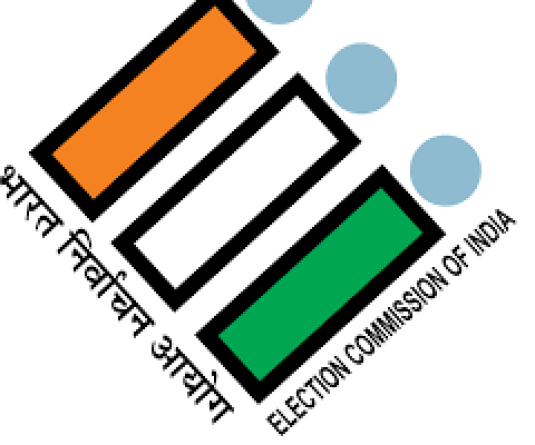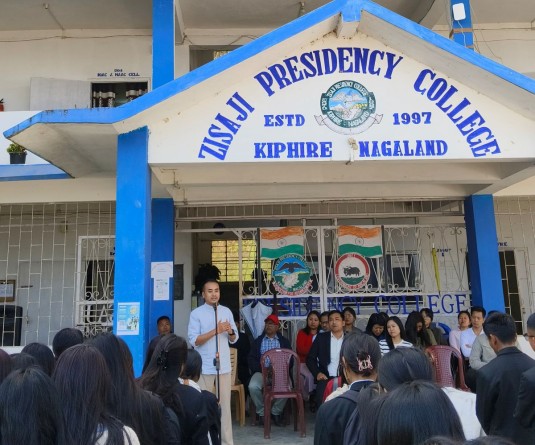
Morung Express News
Dimapur | June 13
It was mid 2009. Following 21 official meetings – and innumerable smaller ones - with the Forum for Naga Reconciliation (FNR), the second rung leaders of three Naga political groups met alongside the Forum’s leaders. They drafted what came to be known as the ‘Covenant of Reconciliation.’ It was decided that the top most leadership of each of the groups should sign their commitment to the same. On June 13, 2009, all the leaders came on board.
The Covenant of Reconciliation (CoR) was signed by Late Isak Chishi Swu of the GPRN/NSCN (IM), Late SS Khaplang of the GPRN/NSCN (K) and Brig. (Retd.) S Singnya of the FGN/NNC (SZ) committed to Naga Reconciliation and “forgiveness based on the historical and political rights of the Nagas.”
Nine years since then, the journey of reconciliation that Naga society stepped into has been no easy task. But the CoR opened up a host of possibilities. First, very slowly, “factional” violence came to a halt.
“It opened an atmosphere of safe travels for the NPGs without the fear of becoming a victim of another group. Citizens experienced a sigh of relief in accomplishing their daily chores without fear. Above all, the haunting sense of an unknown evil fled from the psyche of most people,” noted Convener of the FNR, Rev. Dr. Wati Aier whose tireless efforts led to the leaders signing the Covenant, and delivering it from their roving locations to his doorstep.
Dr. Wati was speaking at the Worship of Celebration and Commitment observed today on the 9th year of signing of the CoR at DABA in Dimapur’s Duncan Bosti. Organized by the FNR, the program brought together not just leaders of today’s Naga political groups but also their cadres in a combined choir. It also saw various denomination of Naga churches come together alongside the Nagaland Joint Christian Forum—Baptist, Catholic, Nagaland Christian Revival Church, Assemblies of God.
As the Naga Reconciliation process unfurled, business bloomed, development expanded, children received the gift of peace, academia gained insight into conflict transformation processes and even the Government of India followed suit by removing the Protected Area Permit/Restricted Area Permit (needed by foreigners at the time).
The near-decade long ‘Journey of Common Hope’ has now transformed to enter the public domain. “FNR has marked 2018 as the year of Walking the Naga Day,” said Dr. Wati in today’s program, which was led by Dr. Rosemary Dzüvichu.
“We have to hope, and hope is something we can learn through engaging with one another and discovering who we are as persons and at the same time as a people with a distinct identity,” he encouraged. (Full text here)
Survival to forgiveness
It was in the essence of this hope that two moving personal testimonies were shared today, each a survivor of violence by “our own people,” each having forgiven the perpetrators in the interest of reconciliation.
“I was devastated,” recalled Khetoli N who took the first step to talk about her journey with forgiveness that she continues to live every day. Her husband was shot dead—“he was not killed in war against the Indian army but by our own people.” She prayed for years, Bible in hand, her children by her side, for God to “forgive them” as she had forgiven them.
On the other hand, Visasier Kevichusa was a child when his father, Chalie Kevichusa, was shot and killed in the presence of his sister. Less than four years later, his uncle, Tubu Kevichusa, was also shot dead. Both times, Visasier’s uncle said, “We as a family forgive those who have done this.” But the two killings “traumatised, influenced, and changed” their lives as a family and as individuals.
Like Khetoli, Visasier realized that “without forgiveness we cannot move forward.”
“We cannot keep holding on to the past if we expect to take hold of the future,” he said, pointing out the reasons he forgave, which does not mean they don’t “feel the pain anymore.” (See Visasier’s full text here)
While many in today’s gathering silently matched these courageous testimonies with their own strings of violence, that snowballs into the collective Naga experience, the prayers of pastors, ordained ministers and the common Naga person may have provided a slight balm. It also shed light on the FNR’s path forward—to bring together the public in forging the ‘shared future’ imagined by the Naga Reconciliation process.
Bring us together
The Naga political groups also re-affirmed their commitment to the Covenant of Reconciliation.
“FNR needs to assess the gaps and challenges… the groups will not come together on their own, it still needs a mediator like FNR to bring us together in reconciliation,” said Gen. (Retd.) Thinuoselie Keyho who joined the Naga movement, alongside others, thinking that it was a matter of 3 months. “It has been 63 years and I am 88 years old,” said the FGN/NNC leader who has seen the Naga movement undergo a spectrum, for whom the Naga Reconciliation process must stand by the “historical and political rights of the Nagas” based on which it was signed.
Eustar Chishi Swu, wife of Late Isak Chishi Swu, also recalled the struggles that they faced as a family, and as a people, but maintained that her husband always upheld the Covenant he signed in 2009.
“The power of forgiveness and acceptance has changed our minds,” said C Singson, Advisor to the Collective Leadership of the Working Committee of the Naga National Political Groups (WCNNPGs). Reading out a message from Kitovi Zhimomi, Ato Kilonser GPRN/NSCN (KN), he acknowledged that the FNR’s work has narrowed differences between the groups and it is the common endeavour of the Working Committee to “bring peace and unity to our land.”
In a written message delivered by V Makritsü, Rh. Raising, Kilo Kilonser, GPRN/NSCN (IM), said that the group is not opposed to ‘political reconciliation’ but “we are for issue-based reconciliation.”
“We view reconciliation among the workers and rebuilding the damaged relationship between the workers and the people, between the Nagas and their neighbouring peoples and nations and between the Nagas and their aggressor states and, above all, reconciliation between the Nagas and God as the sacrosanct duty of all Nagas.”
Today’s program saw a book titled ‘Walking the Naga Day,’ an FNR publication, released by Rev. Dr. VK Nuh. Messages were also sent through voice recordings by the Quakers from the UK.
‘Voices of Hope’ were rendered by three young people, Rakodu Nukhu, Bwenye Kemp and Rev. Dr. Ellen Konyak Jamir. (Follow the links to find texts of their voices)
To see a photo feature on the commemoration, click here.





